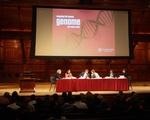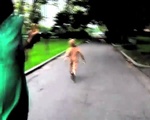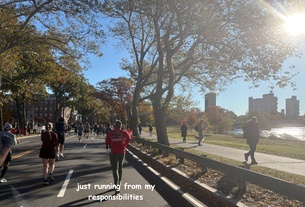Research
Electrical Fields Might Fight Fires, Researchers Say
Harvard researchers have recently discovered a novel method for fire suppression using electrical fields—a finding that may have implications for firefighting because it does not rely on the rapid delivery of physical suppressants such as water, powder, or carbon dioxide to the site of a flame.
Mercury Not A Risk For Heart
Exposure to mercury does not increase the risk of coronary heart disease, stroke, or total cardiovascular disease, according to a ...
After Quake, Geology Research at Harvard Assumes New Urgency
Professors leading research initiatives in earthquake science at Harvard say there were prior indications of the earthquake that hit Japan two weeks ago, but that they were taken aback by its 9.0 magnitude
Study Finds No Anti-Conservative Discrimination in Graduate School
Conservatives are less likely to pursue a Ph.D. than liberals not because of discriminatory hiring practices, but because they perceive academia as a liberal bastion, according to two studies released by Harvard Sociology graduate student Ethan A. Fosse and University of British Columbia associate Sociology professor Neil Gross.
Caffeine and Alcohol Spark Discussion
The debate surrounding the effects of caffeinated alcoholic beverages on the human body still continues, although it has been three months since the Food and Drug Administration ordered the drinks—including the well-known Four Loko—pulled from the shelves.
Panel Discusses Genome Research
Scientists discussed the importance and impact of the Human Genome Project yesterday at a panel moderated by University President Drew ...
Placebos Found to Have Positive Effects
Placebos may have beneficial effects even if the patient is completely aware of the medicine’s inert nature, according to a recent Harvard-affiliated report.
Clay Structures Form Part of Cell
A team of researchers recently demonstrated the ability of clay to assemble itself into semi-permeable membranes, the first time that such membranes—which are an important building block in cells—have been formed out of an inorganic material.
Kudzu Does Not Heighten Intoxication
A recent study by Harvard-affiliated researchers revealed that kudzu—an herb found to reduce alcohol consumption—does not work by increasing the intoxicating effects of alcohol so that individuals get drunk faster.
Study Finds New Stem Cells Effective
Two new studies by Harvard stem cell labs have shown that human induced pluripotent stem cells (iPSCs) are the equivalent of human embryonic stem cells for the purpose of reconstructing certain key types of cells, including neurons.
Report Finds Flaw in Health Care Legislation
Millions of Americans could temporarily be left without insurance coverage under the recent health care reform legislation, according to a study co-authored by Benjamin D. Sommers, an assistant professor at the Harvard School of Public Health.
Obama's Budget Boosts Science Funding
In welcome news for universities, President Barack Obama’s 2012 budget proposal released on Monday focuses on promoting and investing in innovation and includes funding increases for science research and continued support for student financial aid.
Harvard Biologist Receives BBVA Foundation Frontiers of Knowledge Award
Entomology Professor Edward O. Wilson, a ground-breaking biologist who coined the terms “biodiversity” and “sociobiology,” has received the BBVA Foundation Frontiers of Knowledge Award in the Ecology and Conservation Biology category, in recognition of his long and varied career in the field.
A Monkey, a Banana, and a Bit of Violence
The Graduate School of Education might want to consider adding animal self-defense to the course catalog. When Anjali Adukia traveled to India to retrieve data for her dissertation at the GSE, she never expected to have her intellectual property (physically) stolen by a furry animal, or by a cute kid in a costume, for that matter. Her escapade was reenacted by the GSE's magazine here.
Harvard Prof. Dislikes Term 'Low-Fat'
Before you sit down to eat a low-fat muffin, hold the cheese on your salad at lunch, or indulge in a bowl of low-fat frozen yogurt, you might want to think again.








